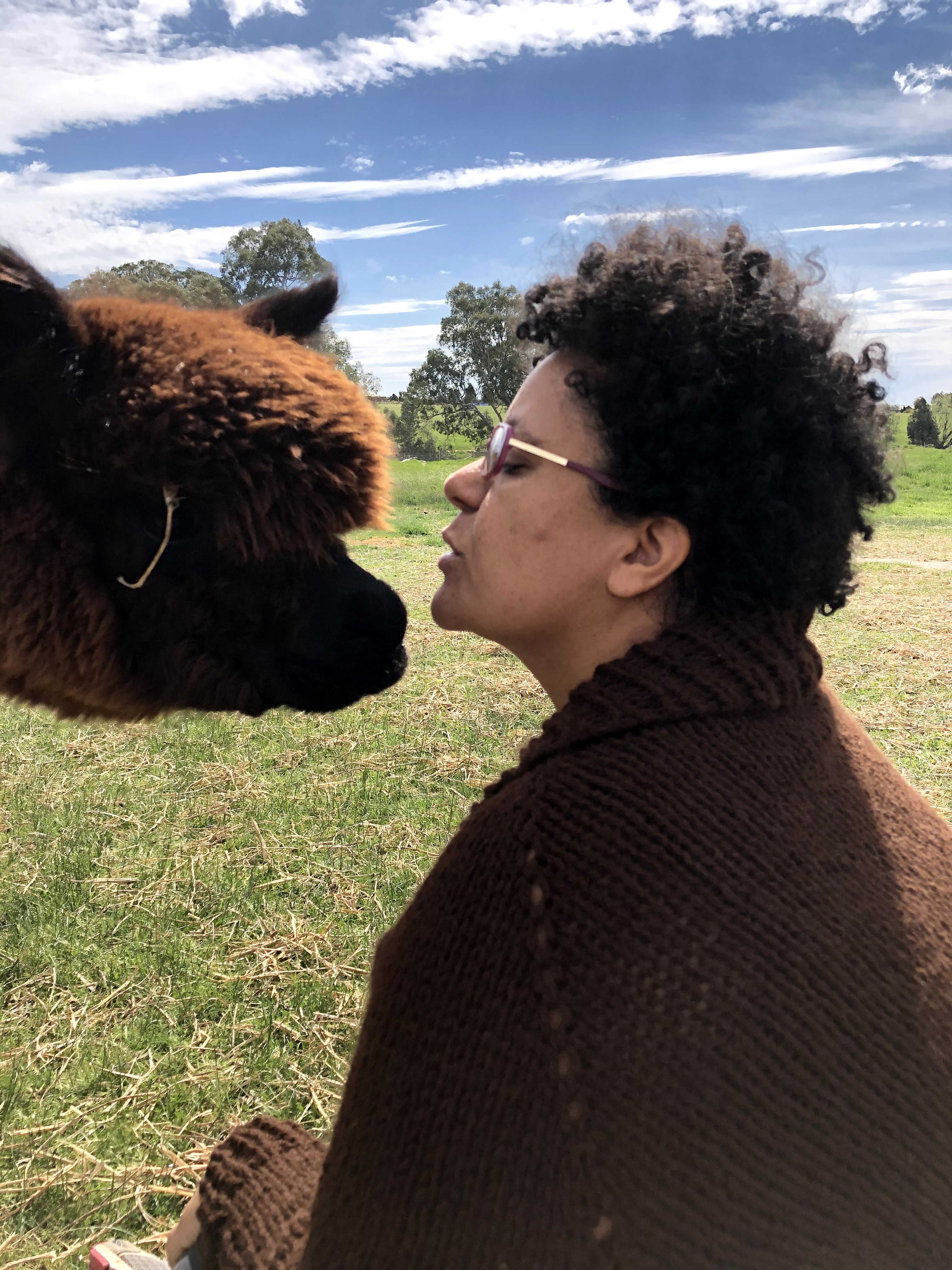How much does an alpaca cost in Australia?
- Rita

- Sep 9, 2022
- 3 min read
Updated: Sep 29, 2023
Contemplating buying alpacas? One of the first things you might wonder is how much they cost to buy. I often get asked this question, and I always reply: "it varies". Alpaca prices depend on age, gender, fibre, conformation, genetics, and what they will be used for. Grazing farm companions will cost considerably less than stud animals.
The other cost you need to be aware of is maintaining alpacas. Can you afford to keep them?

When considering alpacas, you need to factor into account not only their purchase cost but also the cost to maintain them.
The first question I ask prospective alpaca owners is why they want alpacas. Do you want them as farm companions ("pets")? Do you want to breed? Do you want to harvest their fibre to spin and knit? Do you want them as herd guardians for your flock of sheep, goats, or chickens? The "why alpacas" question will greatly determine their price range.
Below are some broad guidelines regarding the prices of alpacas in Victoria, Australia as of 2023:
Pets (farm companions): wethers (castrated males) or non-breeding females - $400 to $1,000
Breeding females - $1,000 +
Stud males - generally much dearer than females. Good quality males generally start at $3,000+
Be mindful that the prices vary greatly between breeders, their location in Australia, reputation, marketing strategies, and whether or not they offer other features such as delivery and after-sales service.
The cheapest alpacas will be "farm pets". I don't use the word "pet" because alpacas are not dogs and cats but livestock. I prefer the term farm companions - lovely animals to graze your paddocks, interact with, and enjoy. Farm companion alpacas can cost anything from a few hundred dollars to a thousand or more. Younger and halter-trained alpacas can fetch upper-end prices.
Females generally attract higher prices than castrated males, as they can breed. Prices start from around $1,000 and upwards into the thousands. The better their genetics, conformation, and fibre, the more you pay.
The next level is stud males. Like any other livestock, quality alpaca stud males can attract considerable prices. One of the most expensive alpacas in Australia sold for around $172,000 to an overseas buyer.
What about herd guardians? Both castrated males (wethers) and females can act as guardians for sheep, goats, or chickens. However, not all alpacas have a guardian personality to notice foxes and chase them away. Only a few will. Herd guardian alpacas can command various prices but generally follow companion alpaca prices - starting at around $600 and upwards.
Besides the purchase cost, you also need to consider the cost of maintaining your alpacas. Alpacas require annual shearing, hay, vaccinations, and vitamin D supplementation. Will you have to spend money on fencing your paddocks, fixing your boundary fencing, installing water troughs, and setting up a handling yard? What about a field shelter? Before buying my first alpacas, I had to fence part of my farm and install water troughs and field shelters, as my property wasn't set up for alpacas. It cost me a lot of money. Also, consider having an emergency vet fund in case of accidents or illness. They are rare and might not happen, but when your alpaca is ill, you want to have the funds to cover a vet visit and medication.
Let's look at a real example, my friend Mary (name changed for privacy reasons).
Mary bought four wethers for $2,800 four years ago to live at her 12-acre farm in Central Victoria. She wanted them to graze her paddocks and allow her to hand-feed them. Mary's annual cost of maintaining her four alpacas is approximately $2,000:
Shearing, toenail trimming plus vaccination and vitamin D $250
Vitamin D for autumn and winter $60
Round bales of oaten $200
Lucerne square bales $780
Harness & lead ropes $60
Hay feeder/holder $100
Second-hand water trough $50
Second-hand stock panels to make handling yard $300
Vet farm visit for limping alpaca and injections $260
TOTAL costs per year = $2,060
Mary didn't have to spend much on her farm setup as her fencing was adequate. She saved a lot of money by making a handling yard with second-hand materials. She also had an old field shelter that she could use to shelter her alpacas during extreme weather or to keep any sick animals.
When buying alpacas, you need to know their purchase price and maintenance cost. Alpacas can live up to and beyond 20 years of age. They are a long-term commitment that will cost you money and bring lots of enjoyment.
Interested in learning more about alpacas? Attend one of our workshops, subscribe to our newsletter and follow us on Facebook or Instagram.



